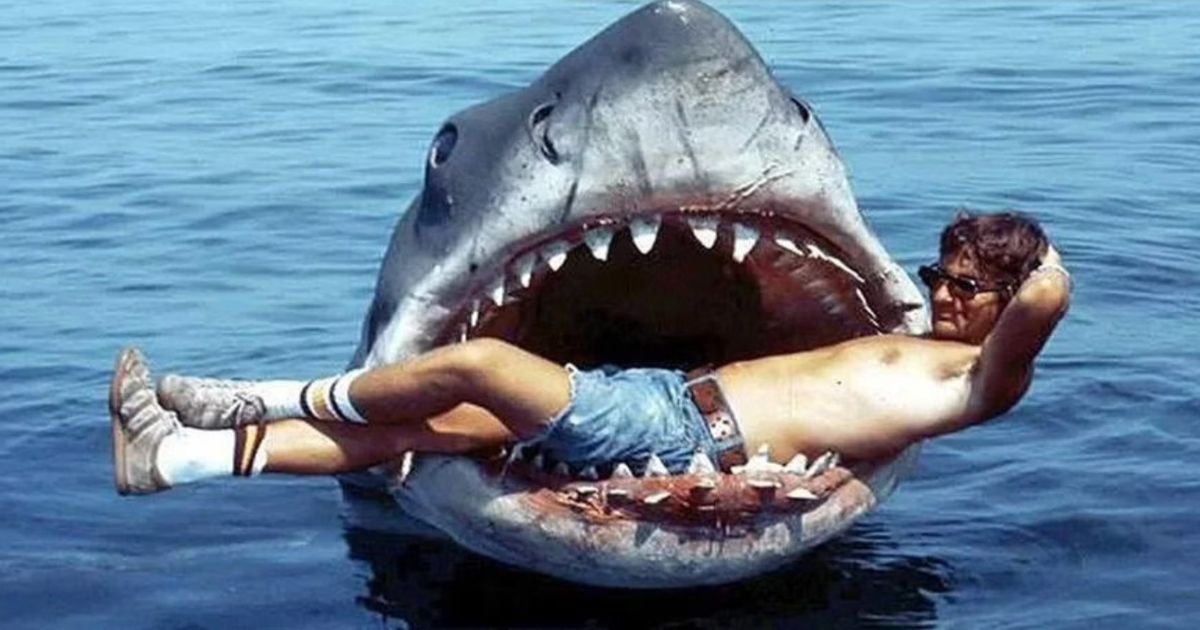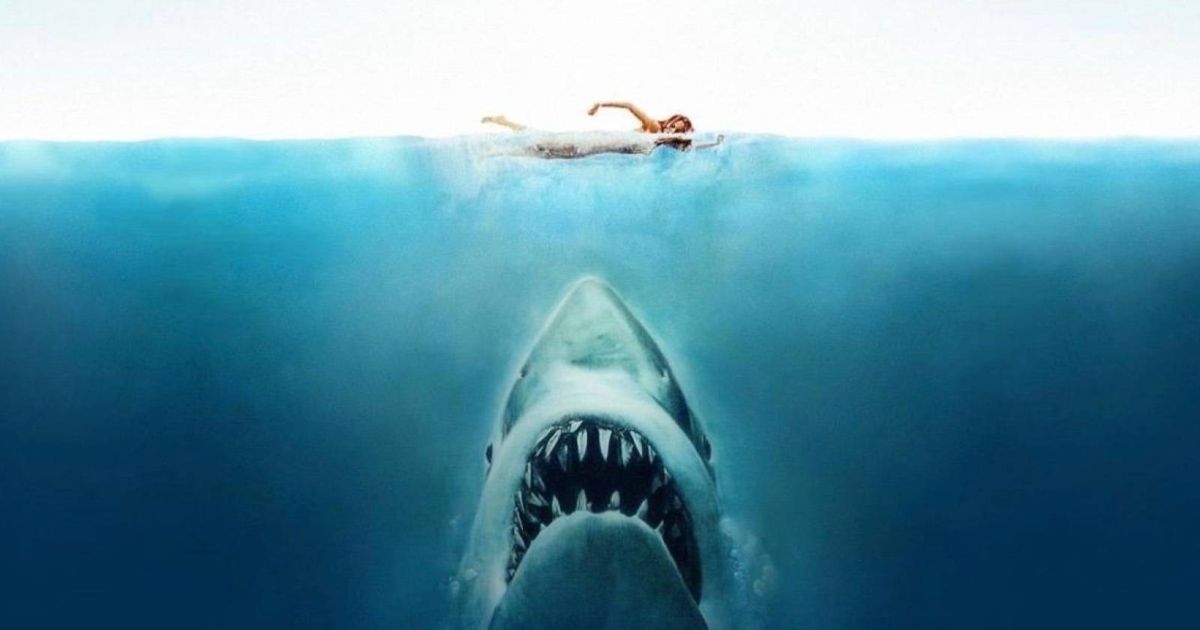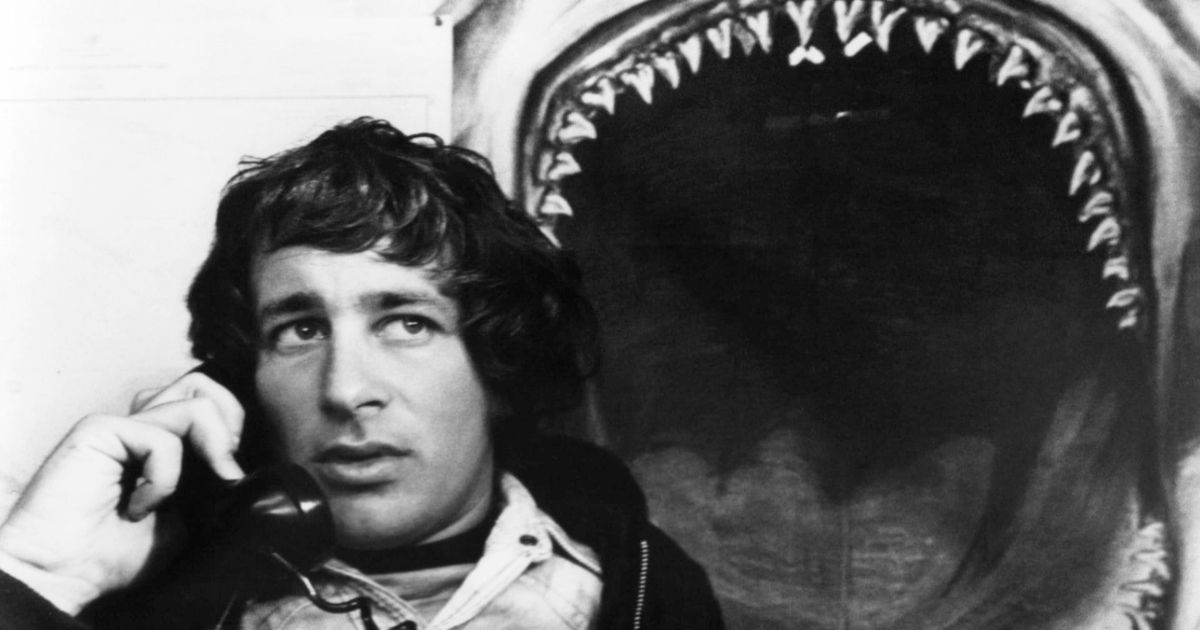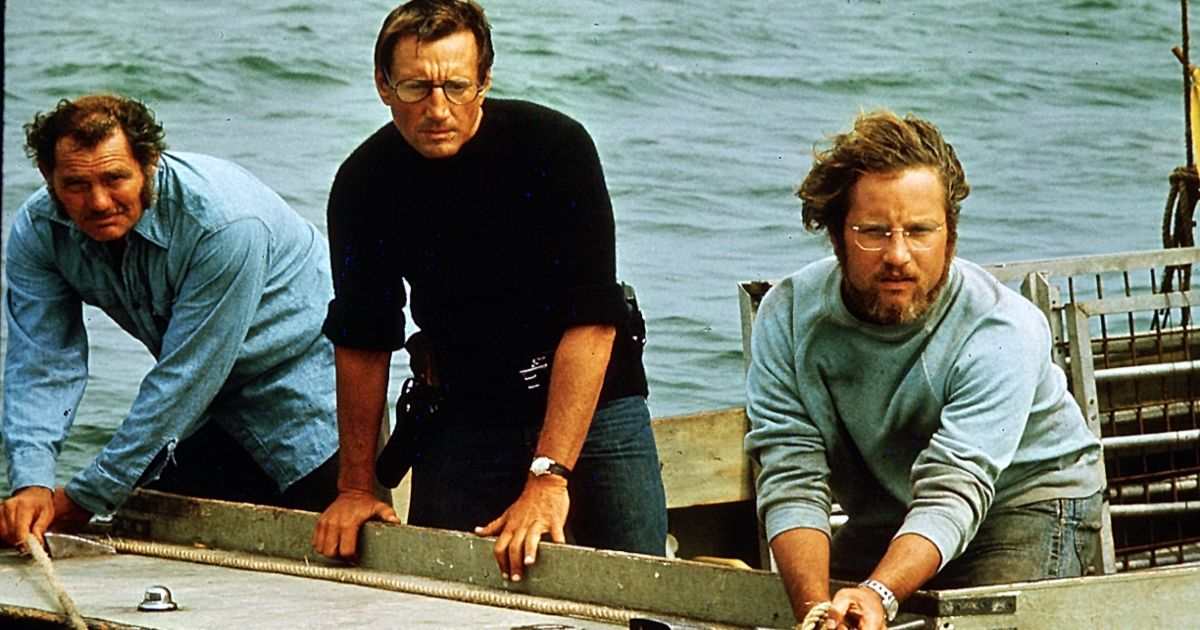Steven Spielberg’s Jaws is one of the most iconic films in Hollywood's long history. Not only is the film considered to be one of the best ever to be put to screen, but the overall effect that the legendary shark-flick had on the movie-making industry cannot be understated. It’s the film that put Spielberg on the map. It established him as one of the must-watch directors of the 1970s, before he would grow to be one of the greatest filmmakers in the history of the medium.
Released in June of 1975, Jaws was a turning point for Hollywood. Although the landscape had already been evolving for a while, Hollywood was still experiencing the growing pains that came with the exiting of the Golden Age and the era of the studio system; it was the release of Jaws that truly cemented the newest era of American filmmaking. It would be a time dominated by new ideas, fresh faces, and creative experimentation. Much of this change would be driven by a generation of filmmakers that would become known as “The Movie Brats,” with key figures such as Spielberg, George Lucas, Francis Ford Coppola, Martin Scorsese and Brian De Palma forming a close friendship that forever changed the cinematic landscape.
Though Spielberg had released two films already, it was Jaws that changed everything, not just for the director but for the industry. Here’s how:
The First Summer Blockbuster
Jaws is referred to as “the first summer blockbuster” so often that the phrase has almost lost its meaning. However, that doesn’t mean that the title doesn’t befit the film. Summer blockbusters are almost entirely what drives Hollywood these days, with films like The Avengers, Top Gun: Maverick, Jurassic World, and so many more bringing people out to the theater en masse. They are thrilling, big-budget action movies that bring general audiences in to experience the spectacle of it all. While there’s no doubt the content of the typical summer blockbuster has changed in the nearly 50 years since the release of Jaws, every single blockbuster released today still has to be thankful to Spielberg’s oceanic thriller for laying the foundation on which they’ve been built.
Jaws is the granddaddy of it all. It’s a brilliantly made film that also has a mass appeal. It’s exciting, funny, scary, adventurous and just an all-around immensely entertaining theatrical experience. That’s not to say films prior to 1975 hadn’t been made to evoke these kinds of reactions in their viewers, but Jaws was the first to do it on such a widespread scale. When it was released, Universal Pictures gave Jaws one of the widest theatrical runs of any movie up to that point. It was thoroughly marketed and advertised, and it was playing simultaneously in most theaters across the country. Everybody could go and see Jaws, and most people did. It ended up becoming the highest-grossing movie of all time at that point, unseating The Godfather, which had held the title since 1972.
The movie was a major milestone in the landscape of Hollywood filmmaking. It proved that audiences would show up in immense numbers for these kinds of fun and exciting theatrical roller coasters. The effect it would have on the industry is still being felt today, as most major studios produce almost nothing but blockbusters now. It would only be a couple of years before Jaws would be unseated from the throne of the highest-grossing movie of all time by another early blockbuster you may have heard of, Star Wars.
The Beginning of a Long Career
It wasn’t just the astounding box-office performance and ensuing cultural phenomenon of Jaws that put Spielberg in the books of film history. Jaws was just the beginning for the young director, as he would go on to direct many of the most successful films and franchises in cinematic history. Over the decade following Jaws, Spielberg cemented his place as one of the best working filmmakers at the time, with the likes of Close Encounters of the Third Kind, Raiders of the Lost Ark, E.T the Extra-Terrestrial, and more. Over that same time frame, he received his first four Oscar nominations as well. He became one of the biggest names in Hollywood, producing hit after hit and classic after classic.
Spielberg’s films weren’t just loved by general audiences; they were also critical darlings. The director found himself in a sweet spot where nearly everything he was making was being loved by just about everyone. Nobody would’ve blamed him if he decided to take some time for himself, or if he were to lose some of his Midas touch as the years progressed. But he didn’t. He was a workhorse, consistently putting out a new movie every couple of years, and to this day he is still making truly outstanding cinematic works. His most recent film, a remake of West Side Story, was his first attempt at a musical, and the result is arguably one of his best films yet. And his next film, The Fabelmans, is a semi-autobiographical story of his childhood that is sure to be a frontrunner this awards season.
There is always a lot of talk about who is the greatest of all time in their particular field. Well, in the landscape of filmmaking, there is a very strong argument to be made for Spielberg being the GOAT. He’s branched into so many different genres, directing some of the best movies ever put to screen, ranging from Jurassic Park to Schindler’s List (in the same year!), Saving Private Ryan, Raiders of the Lost Ark and, obviously, Jaws. It all started with Jaws. It made Spielberg a name in the industry. If it weren’t for the success of that film, there wouldn’t have been so many studios lining up to work with Spielberg, and as such, many of his countless masterworks may have never been made.
Influence and Inspiration
Spielberg’s influence on the American movie industry would forever change it. Over the last five decades, there have been innumerable filmmakers that were directly inspired by the work of Spielberg. This trend of inspiration began pretty immediately after the release of Jaws. In the years following, while Spielberg was still establishing his own career, he was also working to elevate those of the other friends and creatives he worked with.
A significant number of the blockbuster filmmakers of the ‘80s, 90’s and even today took inspiration from Spielberg and applied many of his filmmaking styles and techniques to their own movies. The term “Spielbergian” was coined to describe these movies that imitated the director's signature brand of light-hearted humor mixed with an awe-inspiring tone. Many of the directors that would become big names in the industry were first contemporaries and friends of Spielberg’s. Directors such as Chris Columbus (Home Alone, Mrs. Doubtfire, Harry Potter), Joe Johnston (The Rocketeer, Jumanji, Captain America: The First Avenger) and Robert Zemeckis (Romancing the Stone, Back to the Future, Forrest Gump) all had help from Spielberg when establishing their careers. He would often work as a producer on their films, providing advice where he could and allowing his name to be put on the films, so audiences would see a recognizable name and be keener to check the movies out. He served as the spearhead for this new generation of blockbuster filmmakers, many of whom have become Hollywood staples in their own right.
Back to Jaws, though, the influence of Spielberg’s breakthrough picture can be felt in films ranging from Alien (which was famously pitched as “Jaws in space”) to many different modern thrillers and action flicks. Many modern films apply the same hide-the-creature approach that helped to make Jaws the intensely thrilling experience that it was. Most recently, Jordan Peele’s Nope was praised for its use of this technique, along with several other key aspects of the film that were directly influenced by Jaws.
At the end of the day, Jaws and Steven Spielberg have had a tremendous impact on the film industry, both in the filmmakers they have inspired and the stories they have influenced. The film and its director changed the way Hollywood studios looked at how they produced their films. Jaws almost single-handedly established the summer movie season as we know it today and, in addition to all that, it’s still just a really great movie that still holds up half a century later. Jaws is about as perfect as a movie can get, so it’s no wonder why it has had the long-lasting legacy that it has. With only his third feature film, Spielberg created one of the all-time greats. It’s a movie worthy of the praise it has received, and its influence will continue to be felt in Hollywood for as long as Hollywood exists.




